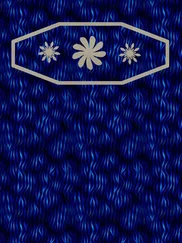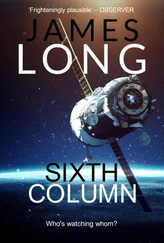Robert Heinlein - Sixth Column
Здесь есть возможность читать онлайн «Robert Heinlein - Sixth Column» весь текст электронной книги совершенно бесплатно (целиком полную версию без сокращений). В некоторых случаях можно слушать аудио, скачать через торрент в формате fb2 и присутствует краткое содержание. ISBN: , Жанр: Фантастика и фэнтези, на английском языке. Описание произведения, (предисловие) а так же отзывы посетителей доступны на портале библиотеки ЛибКат.
- Название:Sixth Column
- Автор:
- Жанр:
- Год:неизвестен
- ISBN:0-671-72026-0
- Рейтинг книги:3 / 5. Голосов: 1
-
Избранное:Добавить в избранное
- Отзывы:
-
Ваша оценка:
- 60
- 1
- 2
- 3
- 4
- 5
Sixth Column: краткое содержание, описание и аннотация
Предлагаем к чтению аннотацию, описание, краткое содержание или предисловие (зависит от того, что написал сам автор книги «Sixth Column»). Если вы не нашли необходимую информацию о книге — напишите в комментариях, мы постараемся отыскать её.
Sixth Column — читать онлайн бесплатно полную книгу (весь текст) целиком
Ниже представлен текст книги, разбитый по страницам. Система сохранения места последней прочитанной страницы, позволяет с удобством читать онлайн бесплатно книгу «Sixth Column», без необходимости каждый раз заново искать на чём Вы остановились. Поставьте закладку, и сможете в любой момент перейти на страницу, на которой закончили чтение.
Интервал:
Закладка:
Robert Heinlein
Sixth Column
A NATIONAL SURVEY ...
He gradually built up a picture of a people being systematically and thoroughly enslaved, a picture of a nation as helpless as a man completely paralyzed, its defenses destroyed, its communications entirely in the hands of the invaders.
Everywhere he found boiling resentment, a fierce willingness to fight against the tyranny, but it was undirected, uncoordinated, and, in any modern sense, unarmed. Sporadic rebellion was as futile as the scurrying of ants whose hill has been violated. PanAsians could be killed, yes, and there were men willing to shoot on sight, even in the face of the certainty of their own deaths. But their hands were bound by the greater certainty of brutal multiple retaliation against their own kind. As with the Jews in Germany before the final blackout in Europe, bravery was not enough, for one act of violence against the tyrants would be paid for by other men, women, and children at unspeakable compound interest.
For John S. Arvvine
CHAPTER ONE
"What the hell goes on here?" Whitey Ardmore demanded.
They ignored his remark as they had ignored his arrival. The man at the television receiver said, "Shut up. We're listening," and turned up the volume. The announcer's voice blared out: "-- Washington destroyed completely before the government could escape. With Manhattan in ruins, that leaves no --"
There was a click as the receiver was turned off. "That's that," said the man near it. "The United States is washed up." Then he added, "Anybody got a cigarette?"
Getting no answer, he pushed his way out of the small circle gathered around the receiver and felt through the pockets of a dozen figures collapsed by a table. It was not too easy, as rigor mortis had set in, but he finally located a half-empty pack, from which he removed a cigarette and lighted it.
"Somebody answer me!" commanded Ardmore. "What's happened here?"
The man with the cigarette looked him over for the first time. "Who are you?"
"Ardmore, major, intelligence. Who are you?"
"Calhoun, colonel in research."
"Very well, Colonel -- I have an urgent message for your commanding officer. Will you please have someone tell him that I am here and see to it that I am taken to him?" He spoke with poorly controlled exasperation.
Calhoun shook his head. "Can't do it. He's dead." He seemed to derive some sort of twisted pleasure from the announcement.
"Huh?"
"That's right -- dead. They're all dead, all the rest. You see before you, my dear Major, all that are left of the personnel of the Citadel -- perhaps I should say of the emergency research laboratory, department of defense, this being in the nature of an official report." He smiled with half his face, while his eye took in the handful of living men in the room.
Ardmore took a moment to comprehend the statement, then inquired, "The PanAsians?"
"No. No, not the PanAsians. So far as I know, the enemy does not suspect the existence of the Citadel. No, we did it ourselves -- an experiment that worked too well. Dr. Ledbetter was engaged in research in an attempt to discover a means of --"
"Never mind that, Colonel. Whom does command revert to? I've got to carry out my orders. "
"Command? Military command? Good Lord, man, we haven't had time to think about that yet. Wait a moment."
His eye roved around the room, counting noses. "Hm-m-m -- I'm senior to everyone here-and they are all here. I suppose that makes me commanding officer."
"No line officers present?"
"No. All special commissions. That leaves me it. Go ahead with your report."
Ardmore looked about at the faces of the half a dozen men in the room. They were following the conversation with apathetic interest. Ardmore worried to himself before replying over how to phrase the message. The situation had changed; perhaps he should not deliver it at all.
"I was ordered," he said, picking his words, "to inform your general that he was released from superior command. He was to operate independently and prosecute the war against the invader according to his own judgment. You see," he went on, "when I left Washington twelve hours ago we knew they had us. This concentration of brain power in the Citadel was about the only remaining possible military asset."
Calhoun nodded. "I see. A defunct government sends orders to a defunct laboratory. Zero plus zero equals zero. It's all very funny if one only knew when to laugh."
"Colonel!"
"Yes?"
"They are your orders now. What do you propose to do with them?"
"Do with them? What the hell is there to do? Six men against four hundred million. I suppose," he added "to make everything nice and tidy for the military mind I should write out a discharge from the United States army for everybody left and kiss 'em good-by. I don't know where that leaves me -- harakiri, perhaps. Maybe you don't get it. This is all the United States there is left. And it's left because the PanAsians haven't found it."
Ardmore wet his lips. "Apparently I did not clearly convey the order. The order was to take charge, and prosecute the war!"
"With what?"
He measured Calhoun before answering. "It is not actually your responsibility. Under the changed situation, in accordance with the articles of war, as senior line officer present I am assuming command of this detachment of the United States army!"
It hung in the balance for twenty heartbeats. At last Calhoun stood up and attempted to square his stooped shoulders. "You are perfectly correct, sir. What are your orders?"
"What are your orders?" he asked himself. Think fast, Ardmore, you big Junk, you've shot off your face -- now where are you? Calhoun was right when he asked "With what?" -- yet he could not stand still and see the remnant of military organization fall to pieces.
You've got to tell 'em something, and it's got to be good; at least good enough to hold 'em until you think of something better. Stall, brother, stall! "I think we had best examine the new situation here, first. Colonel, will you oblige me by having the remaining personnel gather around -- say around that big table? That will be convenient."
"Certainly, sir." The others, having heard the order, moved toward the table. "Graham! And you, what's your name? Thomas, isn't it? You two remove Captain MacAllister's body to some other place. Put him in the corridor for now."
The commotion of getting one of the ubiquitous corpses out of the way and getting the living settled around a table broke the air of unreality and brought things into focus. Ardmore felt more self-confidence when he turned again to Calhoun. "You had better introduce me to those here present. I want to know what they do and something about them, as well as their names."
It was a corporal's guard, a forlorn remnant. He had expected to find, hidden here safely and secretly away under an unmarked spot in the Rocky Mountains, the most magnificent aggregation of research brains ever gathered together for one purpose. Even in the face of complete military disaster to the regular forces of the United States, there remained a reasonable outside chance that two hundred-odd keen scientific brains, secreted in a hide-away whose very existence was unsuspected by the enemy and equipped with every modern facility for research, might conceivably perfect and operate some weapon that would eventually drive out the PanAsians.
For that purpose he had been sent to tell the commanding general that he was on his own, no longer responsible to higher authority. But what could half a dozen men do in any case?
For it was a scant half a dozen. There was Dr. Lowell Calhoun, mathematician, jerked out of university life by the exigencies of war and called a colonel. There was Dr. Randall Brooks, biologist and bio-chemist, with a special commission of major. Ardmore liked his looks; he was quiet and mild, but gave the impression of an untroubled strength of character superior to that of a more extroverted man-he would do, and his advice would be useful.
Читать дальшеИнтервал:
Закладка:
Похожие книги на «Sixth Column»
Представляем Вашему вниманию похожие книги на «Sixth Column» списком для выбора. Мы отобрали схожую по названию и смыслу литературу в надежде предоставить читателям больше вариантов отыскать новые, интересные, ещё непрочитанные произведения.
Обсуждение, отзывы о книге «Sixth Column» и просто собственные мнения читателей. Оставьте ваши комментарии, напишите, что Вы думаете о произведении, его смысле или главных героях. Укажите что конкретно понравилось, а что нет, и почему Вы так считаете.











